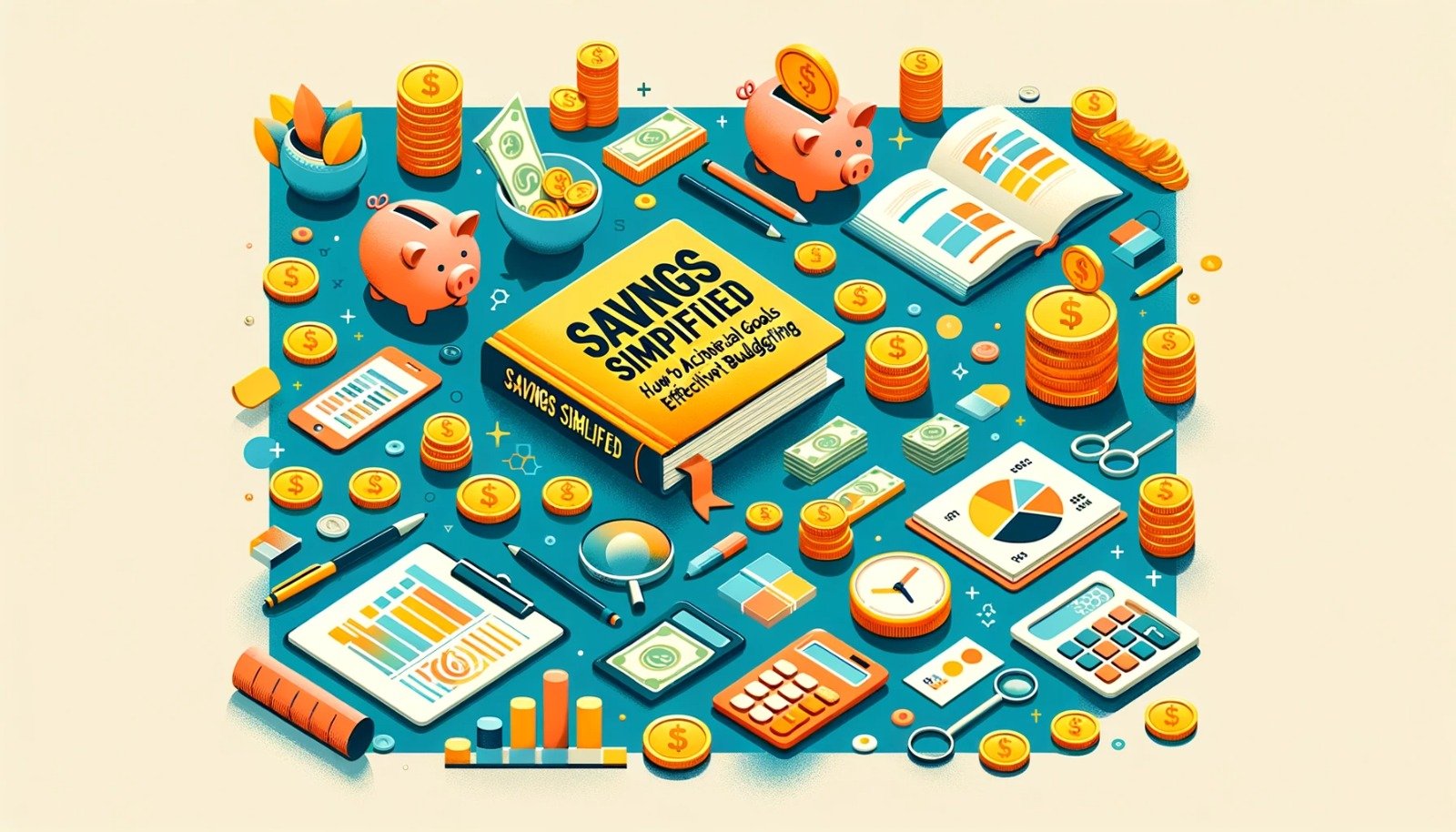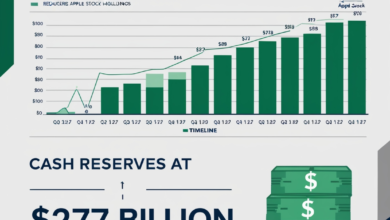Savings Simplified: How to Achieve Financial Goals with Effective Budgeting

Are you tired of struggling to reach your financial goals? Do you feel overwhelmed by the thought of budgeting? You’re not alone. Many people find it difficult to stick to a budget and save money. However, with the right approach, budgeting can be an effective tool for achieving your financial goals and taking control of your finances. In this blog post, we will explore the art of budgeting and how it can help you simplify your savings and achieve your financial goals with ease. So let’s dive in and learn the secrets to successful budgeting.
1. Understanding the Importance of Budgeting for Financial Success
Budgeting is not the most exciting topic to discuss, but it is undeniably crucial for financial success. In today’s fast-paced world, where money flows in and out of our lives with a swipe of a card or a click of a button, keeping track of our expenses and savings can feel overwhelming. However, understanding the importance of budgeting is the first step towards achieving our financial goals and taking control of our financial future.
Budgeting is essentially a financial plan that helps us manage our money. It allows us to allocate our income towards different expenses, savings, and investments, ensuring that we are making wise financial decisions. Without a budget, we risk overspending, accumulating debt, and missing out on opportunities to save and invest in our future.
One of the primary benefits of budgeting is that it gives us a clear picture of our financial health. By tracking our income and expenses, we can identify any areas where we are overspending and make adjustments accordingly. Budgeting helps us prioritize our financial goals, whether it’s saving for a down payment on a house, paying off debt, or building an emergency fund. With a budget in place, we can allocate our resources efficiently, making progress towards our goals while still enjoying our day-to-day lives.
Another crucial aspect of budgeting is that it helps us develop good financial habits. By tracking our expenses and seeing where our money is going, we become more aware of our spending patterns and can make informed decisions. Budgeting forces us to prioritize our needs over our wants, helping us distinguish between necessary expenses and frivolous purchases. It encourages us to be mindful of our spending, which can ultimately lead to better financial habits and increased savings.
Budgeting also gives us peace of mind. Knowing that we have a plan in place and are making progress towards our financial goals reduces stress and anxiety about money. It allows us to have control over our finances, rather than feeling like our money is controlling us. Budgeting provides a sense of empowerment, knowing that we are taking steps towards financial freedom and security.
2. The Basic Principles of Effective Budgeting
Budgeting may seem daunting at first, but once you understand the basic principles, you’ll realize that it’s not as complicated as it seems. In fact, effective budgeting can be quite simple and straightforward. Here are some basic principles to keep in mind when creating your budget:
1. Set Clear Goals: Before you start budgeting, it’s important to have a clear understanding of what you want to achieve. Whether it’s paying off debt, saving for a down payment, or building an emergency fund, having specific goals in mind will help guide your budgeting decisions. Take some time to identify your financial goals and prioritize them accordingly.
2. Track Your Income and Expenses: To create an effective budget, you need to have a clear picture of your income and expenses. Start by tracking all of your sources of income, including your salary, bonuses, and any other forms of income you receive. Next, track all of your expenses, including fixed expenses like rent or mortgage payments, utilities, and car payments, as well as variable expenses like groceries, entertainment, and dining out. By tracking your income and expenses, you’ll be able to identify any areas where you can cut back or make adjustments.
3. Differentiate Between Needs and Wants: One of the key principles of effective budgeting is distinguishing between your needs and wants. Needs are essential expenses that you must pay for, such as rent, groceries, and utilities. Wants, on the other hand, are discretionary expenses that are nice to have but not necessary for your survival. When creating your budget, prioritize your needs over your wants. This doesn’t mean you can’t enjoy the occasional splurge, but it’s important to be mindful of your spending and allocate your resources accordingly.
4. Use the 50/30/20 Rule: A popular budgeting principle is the 50/30/20 rule, which suggests allocating 50% of your income towards needs, 30% towards wants, and 20% towards savings and debt repayment. This rule provides a balanced approach to budgeting, ensuring that you’re meeting your basic needs, enjoying your wants, and saving for the future. Adjust these percentages based on your individual financial goals and circumstances.
5. Regularly Review and Adjust Your Budget: Budgeting is not a one-time task; it’s an ongoing process. As your income and expenses change, it’s important to review and adjust your budget accordingly. Set aside time each month to review your budget and track your progress towards your financial goals. Make any necessary adjustments to ensure that you’re staying on track and making the most of your resources.
3. Strategies to Implement Your Personalized Budget Plan
Creating a personalized budget plan is essential for achieving your financial goals and taking control of your finances. While it may seem overwhelming at first, there are several strategies you can implement to make the process easier and more effective.
First, start by setting realistic goals. Identify what you want to achieve with your budget, whether it’s paying off debt, saving for a vacation, or building an emergency fund. Setting clear and achievable goals will provide you with motivation and direction as you create your budget.
Next, prioritize your expenses. Start by covering your basic needs, such as housing, food, and transportation. These are the non-negotiable expenses that you must pay for each month. Then, allocate your resources towards your wants and savings. Be mindful of your spending and make conscious decisions about what is essential versus what is a luxury.
Another helpful strategy is to automate your savings. Set up automatic transfers from your checking account to a separate savings account. This way, a portion of your income is automatically saved before you have a chance to spend it. It’s a simple and effective way to build your savings without even thinking about it.
Additionally, consider using budgeting tools or apps to help you track your expenses and manage your budget. Many apps allow you to link your bank accounts and credit cards, automatically categorize your transactions, and provide you with reports and insights about your spending habits. These tools can simplify the budgeting process and provide you with a clear overview of your financial health.
Another strategy is to regularly review and adjust your budget. Your financial situation and priorities may change over time, so it’s important to regularly revisit your budget and make any necessary adjustments. Review your budget at least once a month to track your progress and ensure that you’re staying on track towards your goals.
Finally, stay committed and accountable. Budgeting requires discipline and dedication. It’s important to stay focused on your goals and make conscious choices about how you spend and save your money. Find an accountability partner, whether it’s a friend, family member, or financial advisor, who can support and encourage you throughout your budgeting journey.
By implementing these strategies, you can create and implement a personalized budget plan that works for you. Remember, budgeting is not a one-time task but an ongoing process. With time and practice, budgeting will become a natural and effortless part of your financial routine, helping you achieve your financial goals and take control of your financial future.
4. Tools and Resources for Hassle-free Budget Management
Budgeting can be made easier with the help of various tools and resources that are available today. These tools can streamline the budgeting process, track your expenses, and provide valuable insights into your financial health. Here are some of the top tools and resources that can help you manage your budget with ease:
1. Budgeting Apps: There are numerous budgeting apps available for both Android and iOS devices that can simplify the budgeting process. Apps like Mint, YNAB (You Need a Budget), and Personal Capital allow you to link your bank accounts and credit cards, automatically categorize your transactions, and provide you with reports and insights about your spending habits. These apps make it easy to track your expenses, set financial goals, and monitor your progress.
2. Spreadsheet Templates: If you prefer a more hands-on approach, spreadsheet templates can be a useful tool for budget management. Programs like Microsoft Excel or Google Sheets offer a variety of free budget templates that you can customize to fit your specific needs. These templates allow you to input your income and expenses, track your spending, and calculate your savings and debt repayment goals. They provide a visual representation of your budget and can help you stay organized.
3. Online Financial Calculators: Online financial calculators can be a valuable resource for budgeting. Calculators like the debt payoff calculator, savings calculator, and mortgage calculator can help you make informed decisions about your financial goals. They provide you with a clear understanding of how much you need to save, how long it will take to pay off your debt, and how much you can afford to borrow for a major purchase like a house or a car.
4. Online Budgeting Courses: If you want to improve your budgeting skills and gain a deeper understanding of personal finance, online budgeting courses can be a great resource. Platforms like Udemy, Coursera, and Skillshare offer a wide range of courses on budgeting, saving, investing, and more. These courses provide you with expert guidance and practical strategies to help you take control of your finances and achieve your financial goals.
5. Financial Blogs and Podcasts: There are numerous financial blogs and podcasts available that offer valuable insights and tips on budgeting and personal finance. Blogs like The Penny Hoarder, Wise Bread, and NerdWallet provide informative articles on budgeting, saving, investing, and frugal living. Podcasts like The Dave Ramsey Show, Afford Anything, and ChooseFI offer interviews and discussions on various financial topics. These resources can provide you with inspiration, motivation, and practical advice to improve your budgeting skills.
By utilizing these tools and resources, you can simplify the budgeting process and gain control over your finances.
5. Achieving Financial Goals Through Disciplined Spending and Saving
Achieving your financial goals requires more than just creating a budget and tracking your expenses. It requires discipline, commitment, and a willingness to make tough choices. This section will explore how disciplined spending and saving can help you achieve your financial goals with ease.
Disciplined spending is all about making conscious decisions about how you spend your money. It means distinguishing between your needs and wants and prioritizing your financial goals. Before making any purchase, ask yourself if it aligns with your priorities and if it’s worth the money you’ll be spending. By being mindful of your spending, you can avoid impulse purchases and unnecessary expenses that can derail your budget.
One strategy for disciplined spending is to implement a waiting period before making non-essential purchases. Instead of buying something on a whim, give yourself a cooling-off period. This will help you evaluate if it’s something you truly need or if it’s just a fleeting desire. During this waiting period, you can also research and compare prices to make sure you’re getting the best deal. This practice can prevent impulse buying and help you save money in the long run.
Another important aspect of disciplined spending is avoiding debt whenever possible. While it may be tempting to use credit cards or loans to fund your lifestyle, accumulating debt can hinder your financial progress. Instead, focus on living within your means and only spending what you can afford. If you do have existing debt, make a plan to pay it off as soon as possible. By eliminating debt, you free up money that can be directed towards your financial goals.
In addition to disciplined spending, disciplined saving is equally important for achieving financial goals. Saving requires consistent effort and sacrifice, but the rewards are worth it. Set aside a portion of your income for savings every month, even if it’s just a small amount. Automating your savings can make it easier by ensuring that a portion of your income goes directly into a savings account without you even noticing. This practice allows you to build your savings over time without relying on willpower alone.
To maximize your savings, consider adopting a frugal mindset. Look for ways to cut back on expenses without sacrificing your quality of life. This could mean cooking at home instead of eating out, finding free or low-cost entertainment options, or negotiating bills and expenses to get better deals. By being intentional with your spending and saving, you can build up your savings faster and reach your financial goals sooner.
6. Case Studies: Success Stories of People who Mastered the Art of Budgeting
Have you ever wondered if budgeting can really make a difference in achieving your financial goals? Well, the answer is a resounding yes! Budgeting has proven to be an effective tool for many individuals who have successfully taken control of their finances and reached their financial milestones. Let’s take a look at a few success stories of people who have mastered the art of budgeting and achieved their financial goals with ease.
First, let’s meet Sarah. Sarah was drowning in debt and felt overwhelmed by her financial situation. She decided to take charge and create a budget that would help her tackle her debt and save for the future. By tracking her income and expenses meticulously, Sarah was able to identify areas where she was overspending. With discipline and determination, she made sacrifices and cut back on unnecessary expenses. Over time, she was able to pay off her debt and build an emergency fund. Sarah’s budgeting success story is a testament to the power of prioritizing financial goals and making conscious choices about spending.
Next, let’s hear from Mark and Lisa, a couple who had dreams of buying their first home. They knew that saving for a down payment would be challenging, but they were determined to make it happen. They created a budget that allocated a portion of their income towards savings each month. By tracking their expenses and cutting back on discretionary spending, they were able to save diligently. Through discipline and sacrifice, Mark and Lisa were able to achieve their goal of homeownership sooner than they expected. Their budgeting journey shows us that with clear goals and a commitment to saving, even big dreams can become a reality.
Finally, let’s meet Chris, a recent college graduate burdened with student loans. Chris understood the importance of paying off his debt as quickly as possible to avoid accruing excessive interest. He created a budget that prioritized debt repayment while still allowing him to cover his necessary expenses. Chris took on side jobs and made extra payments towards his loans whenever possible. Through disciplined budgeting and perseverance, Chris was able to pay off his student loans ahead of schedule. His story reminds us that budgeting can provide the structure and motivation needed to overcome financial obstacles.
These success stories highlight the transformative power of budgeting. By taking control of their finances and prioritizing their goals, Sarah, Mark and Lisa, and Chris were able to achieve their financial dreams. Budgeting is not a one-size-fits-all approach; it requires personalized strategies and a commitment to making smart financial decisions. However, the rewards are worth the effort.
If you’re feeling overwhelmed by your financial situation, take inspiration from these success stories. Start by setting clear goals, tracking your income and expenses, and making conscious choices about your spending.




